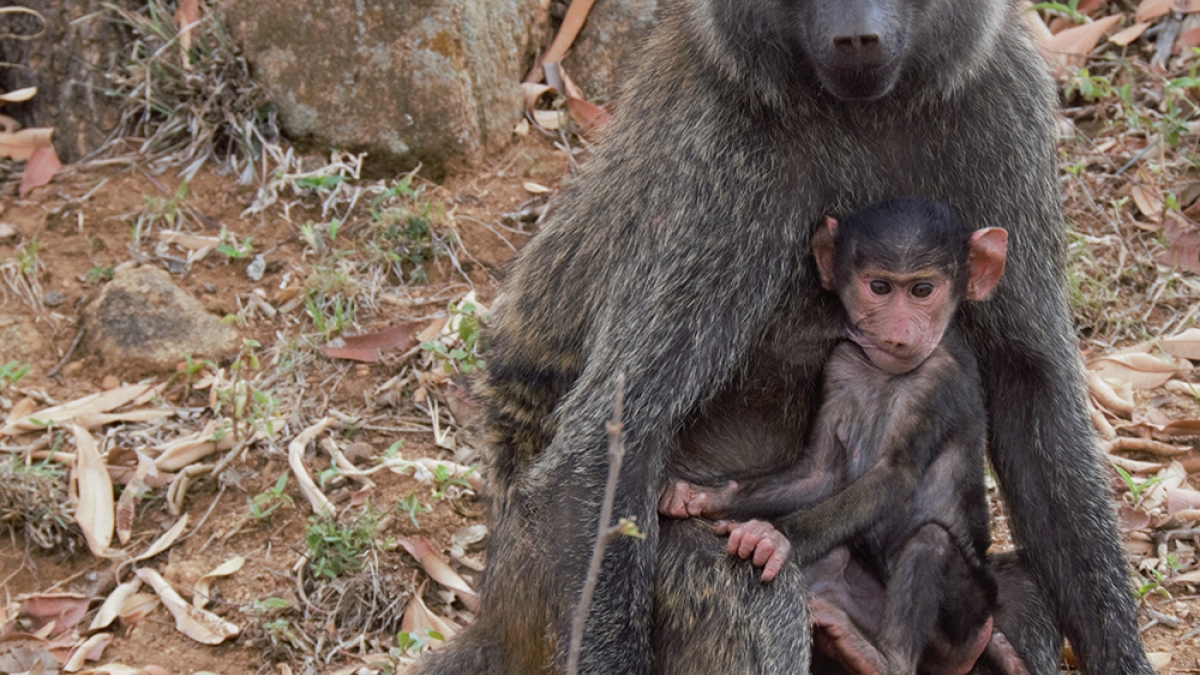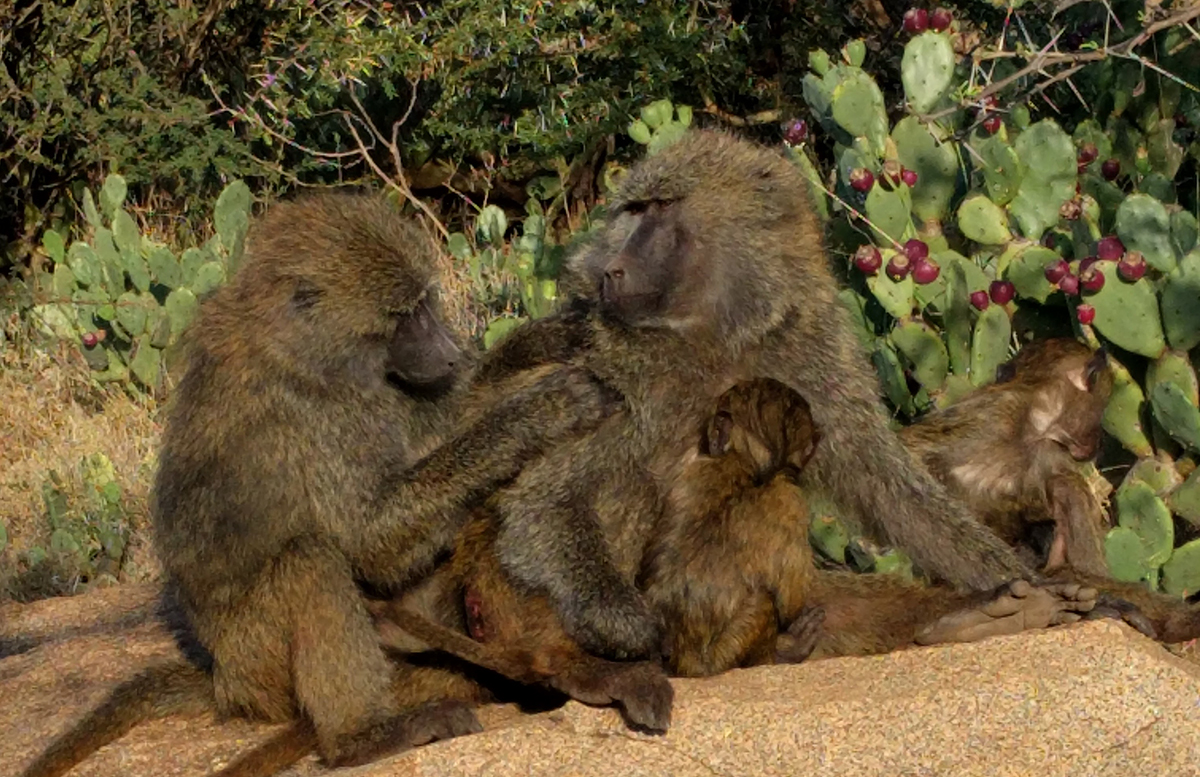Study: A tough early life can have long-lasting effects

Mother and baby baboon. Photo courtesy Joan Silk
For humans, exposure to adversity early in life, and the negative social effects that may result, increase our susceptibility to illness and an early demise.
ASU primatologist Joan Silk, along with ASU doctoral graduate Sam Patterson and researcher Shirley Strum, turn to our primate cousins — female olive baboons — to understand the elemental behaviors that shape the processes connecting early life experiences to temperament and adult social outcomes.
Their research, published this week in the Proceedings of the Royal Society B, demonstrates that female baboons who experience more adverse circumstances very early in life (i.e., during their first year of life) develop less benign interaction styles and weaker social bonds with others as adults.
“Baboons are an ideal study system for examining links between early life adversity, temperament and sociality,” said Silk, a Regents Professor in the School of Human Evolution and Social Change and research scientist with the Institute of Human Origins. “The females tend to remain in the same group throughout their lives and develop strong and supportive relationships with selected female partners.”
The analysis used behavioral data on 31 female olive baboons from three groups in Laikipia, Kenya. The researchers evaluated the links between early life adversity, interaction styles and female sociality. For baboons, early life adversity includes evaluations for environmental conditions in the year they were born, group size at birth, early loss of mother, the interval between successive births of the mother, and whether the individual was the first child of the mother.
Interaction styles among baboon females are measured as the tendency to utter quiet, low frequency calls — called grunts — as they approach another baboon. Grunts play an important role in negotiating social interactions because they function as honest signals of benign intent and are associated with lower levels of aggression and high levels of social connectedness.

Baboon females with a baby grooming each other. Photo courtesy Joan Silk
An interesting result of this research is that early life adversity had a stronger effect on behaviors directed toward another female than behaviors initiated by the individual.
“Because adversity influenced their interaction style, it seems to impact social connectedness via multiple pathways, including physical condition and social attractiveness," said Patterson, who graduated with a PhD from ASU in 2021 and is now a postdoctoral scholar at New York University. "Females who are ‘nicer’ — by approaching another female with benign grunts — form stronger social ties and are more likely to be approached by others than those who are less ‘nice.’”
This work ties together threads from previous work that established links between early life experiences and adult sociality, temperament and sociality, and sociality and fitness in baboons. It is significant because it shows how unfavorable experiences early in life can have lasting influences on development and well-being throughout the life span.
The research article, “Early life adversity has long-term effects on sociality and interaction style in female baboons,” by Sam K. Patterson, Shirley C. Strum and Joan B. Silk, can be accessed online at https://royalsocietypublishing.org/doi/full/10.1098/rspb.2021.2244.
More Science and technology

ASU professor wins NIH Director’s New Innovator Award for research linking gene function to brain structure
Life experiences alter us in many ways, including how we act and our mental and physical health. What we go through can even…

ASU postdoctoral researcher leads initiative to support graduate student mental health
Olivia Davis had firsthand experience with anxiety and OCD before she entered grad school. Then, during the pandemic and as a…

ASU graduate student researching interplay between family dynamics, ADHD
The symptoms of attention deficit hyperactivity disorder (ADHD) — which include daydreaming, making careless mistakes or taking…